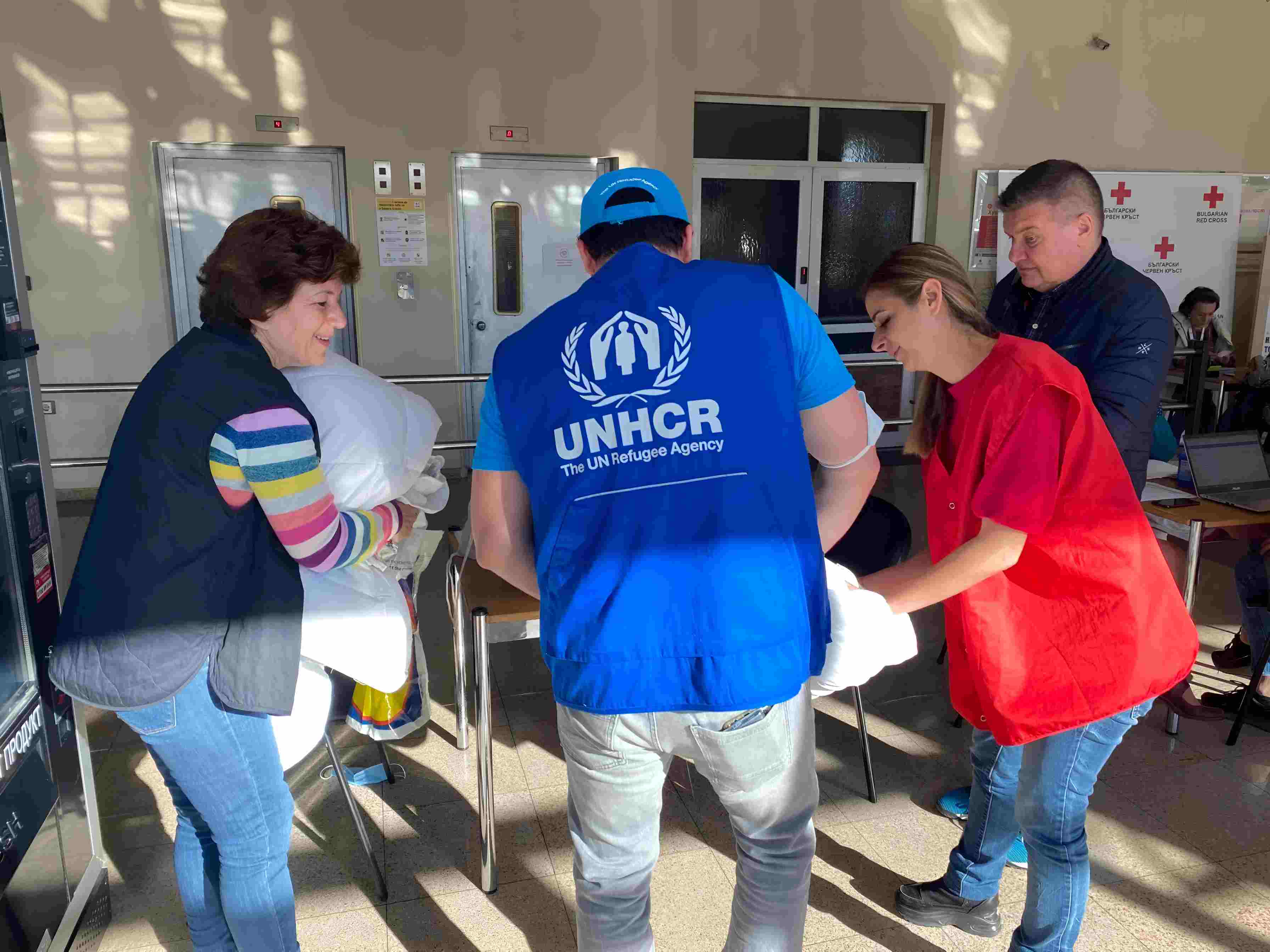The UN Refugee Agency warns that deep funding cuts are leaving millions of refugees without essential services, increasing their vulnerability to abuse, trafficking, and death.
With key programs shutting down in already stretched host countries, displaced families and children are exposed to dangerous conditions.
The agency urges the global community to act quickly to restore aid and prevent more suffering.
Deep funding cuts are removing critical support for the world’s most vulnerable refugees, who now face even greater risks of abuse, poverty, being forced to return home to danger or the prospect of new perilous journeys, the United Nations High Commissioner for Refugees has warned.
Two-thirds of refugees find safety in countries neighbouring their own, most of which are resource-poor.
Reduced funding is hitting hardest these refugees and their host communities, which are already stretched to the limits.
The United Nations High Commissioner for Refugees says it can already see the effects, as efforts to stabilize and support populations in fragile host countries are scaled back or terminated.
The hope of long-term solutions is also fading, making border management more difficult, increasing risks of trafficking and abuse, and pushing more people to continue their journeys, including risking death at sea.
The agency says that chronic underfunding had already weakened responses to refugee needs in places like Sudan, South Sudan, Myanmar and the Democratic Republic of the Congo, even before the current cuts.
In 2024, programmes meant to prevent gender-based violence were only 38% funded under the six Regional Refugee Response Plans.
This has left many refugees without legal assistance, healthcare, or economic support, making them more vulnerable to harm, exploitation and abuse.
There are more than 17.4 million refugee children at risk of violence, abuse, exploitation, trafficking or being separated from their families.
The United Nations High Commissioner for Refugees warns that if timely and proper child protection is not given, these children will suffer long-term consequences to their well-being and development.
Without support, children also face higher risks of abuse, child marriage and being recruited by armed groups.
In South Sudan, 75 per cent of United Nations High Commissioner for Refugees spaces for women and girls no longer offer services. This leaves up to 80,000 victims of rape or violence without medical care, legal assistance and economic support.
In the Eastern Horn of Africa and Great Lakes region, 1 million vulnerable children, some of them unaccompanied, are now at greater risk of abuse and exploitation.
In Jordan, 200,000 women and children have lost access to help after 63 humanitarian programmes providing specialised support closed.
Services to prevent violence against women have shut down in Burkina Faso, Central African Republic, Chad, Cameroon, Mali and Nigeria, affecting survivors of violence and rape.
In Angola, Mozambique and Zambia, similar programmes have been reduced or stopped altogether, leaving women and children without psychosocial support, legal aid or safe spaces.
In Malawi, the cuts have weakened efforts to find and help unaccompanied children.
The agency also says that the suspension of funding will reduce support for local networks and community-based work, especially in emergencies.
In Mali, biometric registration for 19,800 asylum-seekers has been suspended, denying them legal recognition and access to work or public services.
In Bangladesh, programmes focused on women’s leadership and security have been partially suspended, and 10 women-led community centres have halted activities, affecting 109,000 refugees and 32,000 locals.
In the Democratic Republic of the Congo, the agency’s support for birth registration in remote refugee-hosting areas has been sharply reduced.
This has put more than 85 per cent of 14,000 Central African and South Sudanese refugee children under the age of four at risk of statelessness. Across Southern Africa, efforts to ensure access to asylum, provide documentation and deliver protection are being weakened.
In the East and Horn of Africa and Great Lakes region, 850,000 displaced people will no longer receive legal assistance. In Colombia, the documentation of more than 500,000 Venezuelans is now at risk.
Without identification, they face difficulties settling down, getting healthcare, going to school or finding work, which puts them in even more danger.
At the same time, some refugees may now be forced to return to unsafe places. Others who want to return home voluntarily may no longer get the help they need.
In Chad and Cameroon, 12,000 Central African refugees who wish to return home have been left without the support to do so.
In Syria, over half a million refugees have gone back despite continued instability, but their reintegration will not be possible without better funding.
The agency also said that support for 20,000 Syrians each month who want to return from Türkiye has been affected by the cuts.
The United Nations High Commissioner for Refugees has spent 75 years protecting refugees, finding solutions, and supporting stability and hope.
Its experience has helped manage political, security and economic challenges, saving lives and defending rights. The agency says that protecting rights helps reduce displacement, tackle its root causes and find lasting solutions.
“We must come together internationally and recognize our shared responsibility to support those in need and ensure that no one is left behind. Your support can make a difference. It can save lives, restore dignity, and offer hope to those who have lost everything. Let us unite in our commitment to protect and assist refugees," it explained.
"Together, we can ensure that UNHCR continues its vital work and that every refugee receives the care and support they deserve. Millions of lives depend on it."
